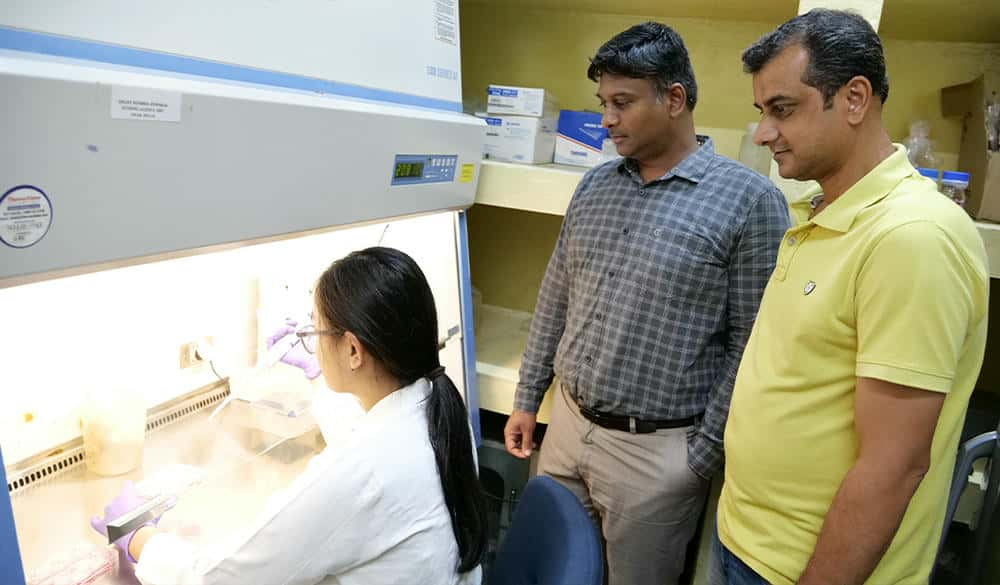IIT Guwahati develops breakthrough clay-based method to detect Coronavirus quickly and affordably

In a significant scientific breakthrough, researchers at the Indian Institute of Technology Guwahati (IIT-G) have developed a fast, low-cost method to detect and measure SARS-CoV-2 — the virus responsible for COVID-19 — using a simple clay sedimentation process.
Unlike conventional virus detection techniques such as Polymerase Chain Reaction (PCR), which are highly accurate but require costly equipment and time, or antigen tests that are quick but less reliable, the new method offers a practical and affordable alternative. It is particularly promising for resource-limited settings and large-scale outbreak scenarios.
The core of the innovation lies in utilising Bentonite clay, a substance renowned for its ability to absorb pollutants. The research, led by Prof. T.V. Bharat (Civil Engineering) and Prof. Sachin Kumar (Biosciences and Bioengineering), in collaboration with scholars Dr. Himanshu Yadav and Deepa Mehta, demonstrates how virus particles bind to the clay in a salt-rich solution and settle at a measurable rate.
“Imagine a world where detecting viruses is as simple as watching sand settle in water. That’s what we’ve achieved,” said Prof. Bharat. “Our sedimentation method offers a faster, more affordable, and reliable alternative to current testing approaches. It’s a big step toward real-time disease monitoring, especially during pandemics.”
The team validated the method using plaque assays and RT-PCR against surrogate coronaviruses and the Infectious Bronchitis Virus (IBV). The results showed accuracy comparable to standard diagnostic tools. They discovered that virus particles bind effectively to the negatively charged surfaces of clay at neutral pH and room temperature, providing a solid foundation for detection.
Published in the peer-reviewed journal Applied Clay Science, the study contributes to IIT Guwahati’s growing portfolio of biomedical innovations. It builds on the team’s previous work on biomedical waste treatment, published in Langmuir and supported by the Department of Science and Technology, Government of India.
Importantly, the method can be adapted to detect other viruses, including the Newcastle Disease Virus (NDV), which has serious implications for the poultry industry.
Looking ahead, the researchers are seeking industry partnerships to initiate clinical trials for SARS-CoV-2 and other viral infections. Their goal is to develop field kits or lab-ready solutions that bring accurate virus detection to places lacking advanced diagnostic infrastructure.
This clay-based technique could transform global efforts in epidemic preparedness and response — making virus detection faster, cheaper, and more accessible than ever before.




Leave a Reply